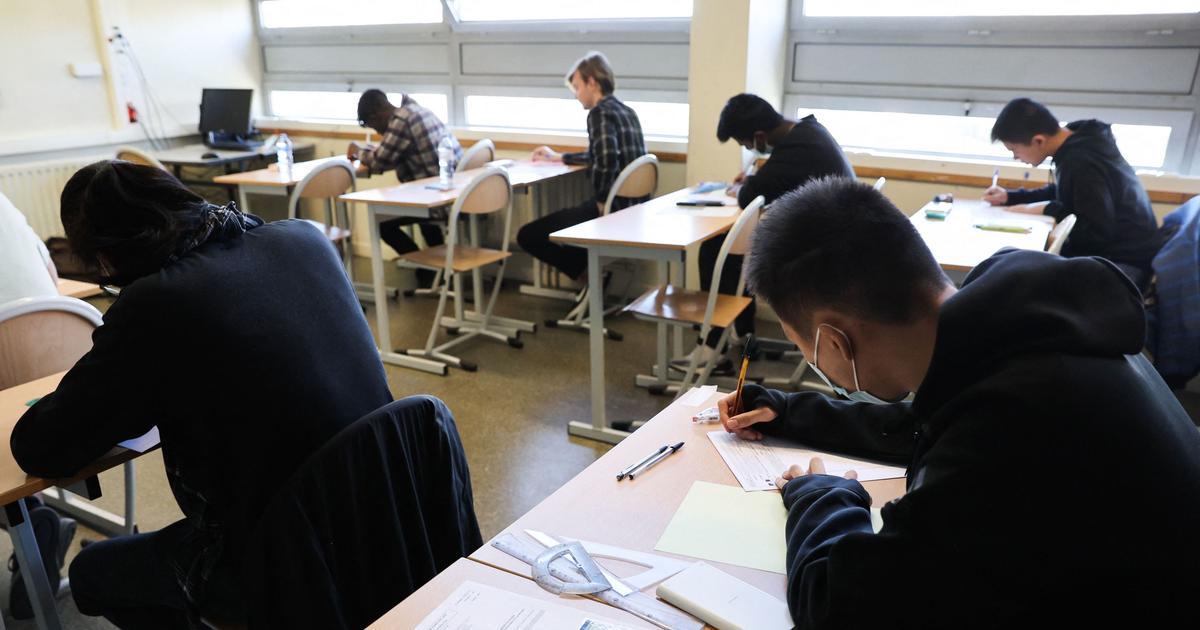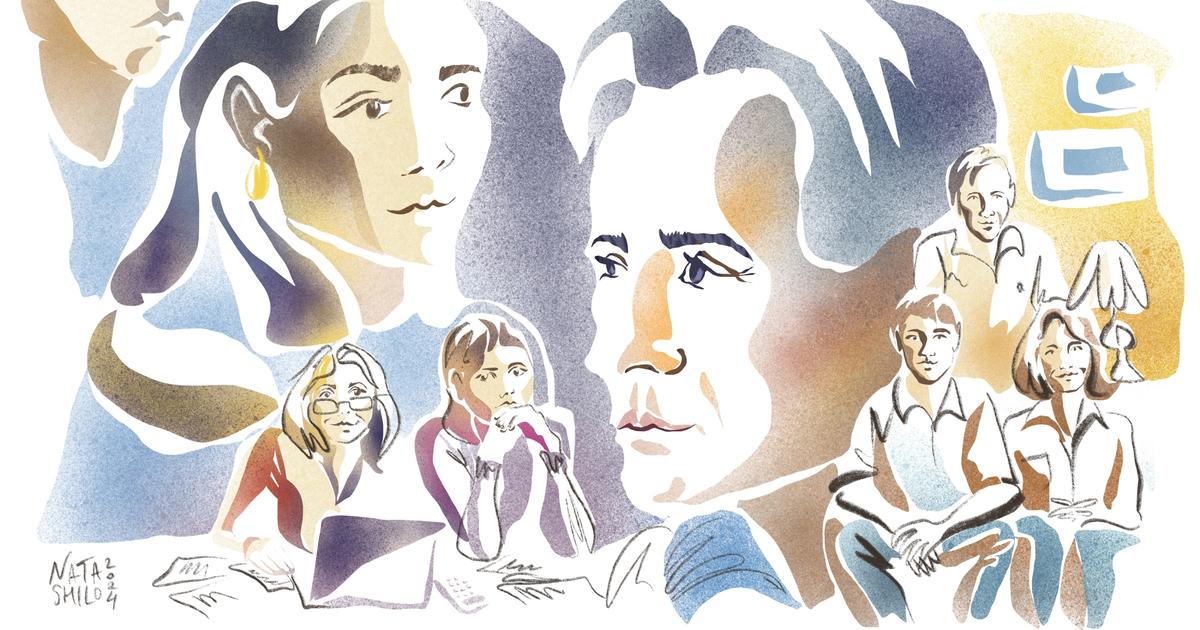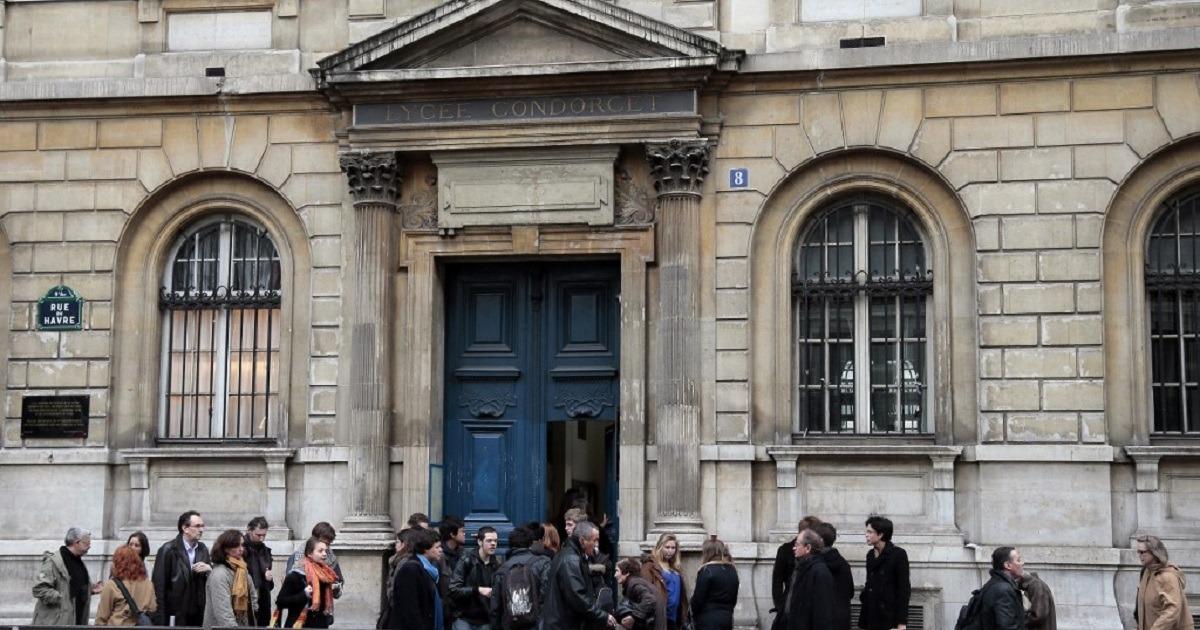Jean-Rémi Girard is president of
Snalc
(National union of high schools and colleges).
FIGAROVOX.- While the selection for higher education is essentially done on file, does the baccalaureate exam still have any meaning?
Jean-Rémi GIRARD.-
The baccalaureate still has a meaning, since without the baccalaureate today one cannot go to higher education, it's a kind of toll barrier.
On the other hand, the bac is not just an individual thing, it is also a national examination which makes it possible to set the standard of what is expected of a student at the end of high school.
This is what allows us to try to teach the same thing throughout the territory.
If there were not this national examination, which moreover exists in all school systems, there would be an increasing risk of moving towards differentiated teaching according to the establishment or the social categories.
The baccalaureate is therefore also what makes it possible to guarantee a relatively uniform education.
This desire to pass the baccalaureate at different times of the year completely disorganizes the school calendar for final year students, but also for those at other levels who do not have lessons when the senior year students take their exams.
Jean-Remi Girard
Canceled in 2020 and 2021 because of the covid, this is the first time that the specialty tests have taken place since the reform. How do you view the baccalaureate reform?
This reform of the baccalaureate had a rather interesting idea at the start, which was that the specialty tests could be included in the Parcoursup file.
This could bring additional interest for orientation in higher education.
The problem is that Parcoursup is a very slow system, and therefore the tests are supposed to be taken in mid-March (they have been moved this year because of the Covid)
.
These exams early in the year pose many problems in the organization of the school year in high school.
First of all, on the motivation of the students after having passed the tests, but also on the quality of the preparation that we bring to them.
To prepare for the baccalaureate, you must not simply see all the chapters, it is also a question of acquiring methods,
Read alsoReform of the baccalaureate: “We cannot rejoice in the death of this monument”
We also see that this reform of the bac was sold as allowing the reconquest of the month of June, by reducing the final tests at the end of the year.
We see this year that it does not work, there is no reconquest of the month of June, classes stop as usual in high schools, that is to say at the beginning of June.
And the colleagues are then occupied with other activities, in particular with the great oral which takes a gigantic amount of time.
Not only did we not make up for the month of June, but we also lost the month of May.
This desire to pass the baccalaureate at different times of the year completely disorganizes the school calendar for final year students, but also for those at other levels who do not have lessons when the senior year students take their exams.
After having experimented with this baccalaureate, we think that the system of final and anonymous national tests at the end of the year is probably the least bad, the one that wastes the least time.
Jean-Remi Girard
The bac grading system has evolved with the reform, now 40% of the final grade is based on continuous assessment and 60% on written or oral tests. Is it a good thing to leave more room for continuous monitoring?
At Snalc, we are opposed to the fact that there is so much continuous monitoring in a national examination.
Continuous monitoring removes part of the national dimension of the exam, and creates an increasingly local baccalaureate.
As we know, the ratings can differ between high schools.
On the other hand, the continuous control also creates many perverse effects, in particular a form of stress in a part of the pupils because they have the impression that all the exams in class are part of the baccalaureate.
On the other hand, continuous assessment creates strong pressure among teachers since, unlike final and anonymous tests for the student but also the corrector, in continuous assessment we know who puts the mark.
This means that the student, the family, or the hierarchy can complain about the correction,
After having experimented with this baccalaureate, we think that the system of final and anonymous national tests at the end of the year is probably the least bad, the one that wastes the least time.
Indeed, this system does not allow to link the tray to Parcoursup, but given the calendar, it is anyway too complicated.
In addition, it avoids the pressure on teachers throughout the first and final year who can focus more on teaching and advancing their students, rather than being mark-making machines. baccalaureate via the continuous assessment, and to be questioned because the grade is not to the liking.
The written specialty tests relate to two subjects, chosen by the pupils from among the three studied in first year, and have a coefficient of 16, the highest of all the tests. By specializing students more, has the baccalaureate reform made it possible to better orient them at the end of terminale? Or on the contrary, is there a lack of general knowledge once they arrive in higher education?
There are certain courses linked to the high school reform which work correctly, and from this point of view the specialty tests are in fact quite classic compared to what we knew before, including in terms of coefficient.
But the major problem is that the fact of having only two specialties in the final year creates a funnel that is very, if not too tight in a certain number of situations.
Many graduate studies often rely on more than two specialties.
For example, the BCPST preparatory classes, which are the Véto and Agro preparatory classes, have as their program a third of maths, a third of physics and chemistry, a third of SVT.
With two specialties in terminal, the articulation with the superior no longer works.
A real concern of this high school reform is that it was made without trying to articulate with the expectations of the superior.
It is very complicated for us teachers to advise students on which specialty to choose or abandon at the end of the first year in relation to their projects.
Sometimes if a student's project changes, the door is closed, because he has not kept the right specialty.
It's hard to see what final year students will do who have kept life and earth sciences and economics and social sciences as specialties, without mathematics.
Jean-Remi Girard
We believe that we must go back to a real national baccalaureate based on national and anonymous final tests.
Moreover, without necessarily going back to the old system with the S, ES and L streams, it is necessary to limit what today is a kind of a la carte choice of specialties, which is very complicated to organize and ensure for teachers, and for students to find their way around.
We want to return to a form of menus, more diversified than S, ES and L, for example sectors with choices inside which would allow to have coherent courses.
Today, it is difficult to see what final year students will do who have kept life and earth sciences and economics and social sciences as specialties, without mathematics.
We believe that it will not be manageable to hand over mathematics for all students at the start of the next school year because the hourly means have already been given to the establishments.
We don't have math teachers, the timetables are already being made, the start of the 2022 school year is already done.
We ask that the place of mathematics in the general path be reworked more seriously in order to take structural measures at the start of the 2023 school year.
We are thinking of a second different mathematical specialty, more oriented towards economics, that is to say the mathematics that existed in the old economic and social sector.
The students we lost in mathematics with the high school reform are not the scientists who generally continue to do mathematics, but those who formerly did the ES stream.
They are doing economics without doing mathematics, it's a structural problem.









